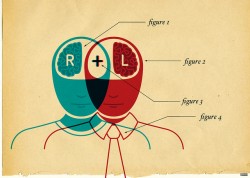There are some things in life that everyone needs to know.
We need to know how to love and how to let go, how to endure suffering and how make ourselves anew. But these are things we learn through experience, through spiritual practice, and from the teachings of the wise.
There is another class of things we need to be taught, and preferably in school. These are the things we need to know in order to make our way in the world. We need to know how to work, how to get along with others, how to solve problems and how to create. And of course, a good education needs to teach the fundamentals of reading, writing, arithmetic and basic science.
But these are all lessons that need to be applied, and they must be applied to a world that is a constantly moving target. Its shape will differ for each person and each generation. And seldom can we predict what shape that will be, because the world is always in a process of becoming.
So a system of education must anticipate the wide range of possible worlds into which we might be thrown. And it must provide the means of its own dissolution. In other words, a good education must teach us how to forget what we have learned.
Another way of getting at this is to say that a good education must teach us how to learn. But the way we learn will need to differ from one generation to the next.
A good education in the Humanities has long sought to teach us how to be fully human. Literature has taught us how to empathize. History has taught us why the world has taken its current shape. The natural sciences have taught us how to use the scientific method in order to solve problems, to discover and to innovate. Philosophy has taught us how to use logic in the process of weighing reasons.
And all of this has taught us something about becoming fully human. The ability to learn for life has, in many ways, been a mere sideshow to these important life lessons.
But the last hundred years or so has seen an explosion in the social sciences.
We now know vastly more about the human mind and society. And everywhere we look, we are seeing our own illusions. A good education must teach us to see through these illusions.
We are also in the midst of an explosion of new innovations, not only material innovations but spiritual and lifestyle innovations as well. Not only must we be teaching young adults how to be creative, but how to creatively adapt. As the pace of change increases, innovative adaptations to an ever changing world will become an increasing constant.
What used to appear universal in the humanities is being increasingly shown up as specific to particular Western societies in particular times and places. And that world is dissolving and not only dissolving but also being destroyed.
A multitude of environmental threats, from climate change to rainforest destruction, soil degradation to the death of the oceans, is challenging us to think systemically or die. If there is a social responsibility to education, it must increasingly be geared toward dealing with these massive systemic issues about which few of us now know how to think.
Each of us increasingly the heir to one great global civilization. It is vastly more diverse than anything that came before. And so a good education must prepare us to interpret, adapt to, and communicate with radical diversity.
But this diversity also increasingly spans multiple developmental levels.
That is, while the world is ever more complex for someone encountering the world as such, encountering the world as such increasingly requires that we be able to relate with people living in far more narrow worlds.
A good education must teach us how to relate with this even more developmentally radical diversity, to jump from the pre-modern to modern to postmodern with ease. And we must not only be able to relate with these differences but coordinate them as well.
This is just a little bit of what it means to be a fully human being in one vast, ever changing world. And of course, we may reject this world, but a good education would teach us how we might do so gracefully.
Love elephant and want to go steady?
Sign up for our (curated) daily and weekly newsletters!
Editor: Catherine Monkman
Photo: Tony Alter/Flickr, opensource/Flickr













Read 1 comment and reply